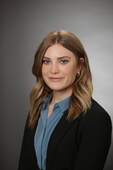EVENT PROGRAM HERE
Agenda
9:00 AM
Opening Remarks: Dean Kevin Johnson, Dean UC Davis Law School
Welcoming Remarks: Symposium Co-Chairs, Conor O'Brien + Kristina Hambley
Introductory Speaker: WLS Board Member, Vincent Vu
California Water Law Writing Prize Award Presentation: Professor Jennifer Harder
Keynote: Eileen Sobeck, State Water Resources Control Board
10:00 - 11:15 AM
Panel 1: Managing Flow Amid Increasing Demand: How Science Can Inform Policy
Organized by: Golden Gate University School of Law & University of California Hastings School of Law
11:15 - 12:30 PM
Panel 2: Indigenous Water Management
Organized by: Stanford Law School
12:30 - 1:30 PM
Lunch
1:30 - 2:30 PM
Panel 3: Voluntary Agreements
Organized by: Berkeley Law
2:30 - 3:30 PM
Panel 4: Drought Curtailments and Other State Regulations
Organized by: University of the Pacific, McGeorge School of Law
3:30 - 5:00 PM
Outdoor Reception
Opening Remarks: Dean Kevin Johnson, Dean UC Davis Law School
Welcoming Remarks: Symposium Co-Chairs, Conor O'Brien + Kristina Hambley
Introductory Speaker: WLS Board Member, Vincent Vu
California Water Law Writing Prize Award Presentation: Professor Jennifer Harder
Keynote: Eileen Sobeck, State Water Resources Control Board
10:00 - 11:15 AM
Panel 1: Managing Flow Amid Increasing Demand: How Science Can Inform Policy
Organized by: Golden Gate University School of Law & University of California Hastings School of Law
- Ted Grantham, UC Berkeley College of Natural Resources
- Meredith Nikkel, Downey Brand LLP
- John Durand, UC Davis Center for Watershed Sciences
- Adam Keats, Law Office of Adam Keats, PC
- Paul Kibel, Golden Gate University School of Law [Moderator]
11:15 - 12:30 PM
Panel 2: Indigenous Water Management
Organized by: Stanford Law School
- Brook Thompson, Stanford University Environmental Engineering Program
- Brittani Orona, UC Davis Department of Native American Studies
- Kaitlin Reed, Cal Poly Humboldt Department of Native American Studies
- Geneva Thompson, California Natural Resources Agency
- Seamus Guerin, Stanford Law School [Moderator]
12:30 - 1:30 PM
Lunch
1:30 - 2:30 PM
Panel 3: Voluntary Agreements
Organized by: Berkeley Law
- Richard Roos-Collins, Water & Power Law Group PC
- Peter Prows, Briscoe Ivester & Bazel LLP
- Doug Obegi, Natural Resources Defense Council
- Jennifer Buckman, Bartkiewicz, Kronick & Shanahan PC
- Karrigan Bork, UC Davis School of Law [Moderator]
2:30 - 3:30 PM
Panel 4: Drought Curtailments and Other State Regulations
Organized by: University of the Pacific, McGeorge School of Law
- Valerie Kincaid, Paris Kincaid Wasiewski LLP
- Samantha Olson, California State Water Resources Control Board
- Alyson Ackerman, Somach Simmons & Dunn
- Jennifer Harder, McGeorge School of Law [Moderator]
3:30 - 5:00 PM
Outdoor Reception
Panel Descriptions and MCLE Resources
Keynote 9:00 AM
Eileen Sobeck, Executive Director of the State Water Resources Control Board.
Keynote Powerpoint
Eileen Sobeck, Executive Director of the State Water Resources Control Board.
Keynote Powerpoint
Panel 1 - 10:00 AM-11:15 AM
Managing Flow Amid Increasing Demand: How Science Can Inform Policy
Organized by Golden Gate University School of Law and University of California Hastings School of Law
California’s water management is a contentious subject, one that has become heightened by the current drought conditions. How do we address the impacts that the decreased supply and increased demand have on the ecological conditions and lives of the species that inhabit our streams and rivers, while ensuring the agricultural sector is receiving enough water? This panel will examine the role that scientifically defensible flow recommendations should play in the larger context of water management in California and how science can inform the inevitable trade offs to come.
Ted Grantham, UC Berkeley College of Natural Resources
Meredith Nikkel, Downey Brand LLP
John Durand, UC Davis Center for Watershed Sciences
Adam Keats, Law Office of Adam Keats, PC
Paul Kibel, Golden Gate University School of Law [Moderator]
Managing Flow Amid Increasing Demand: How Science Can Inform Policy
Organized by Golden Gate University School of Law and University of California Hastings School of Law
California’s water management is a contentious subject, one that has become heightened by the current drought conditions. How do we address the impacts that the decreased supply and increased demand have on the ecological conditions and lives of the species that inhabit our streams and rivers, while ensuring the agricultural sector is receiving enough water? This panel will examine the role that scientifically defensible flow recommendations should play in the larger context of water management in California and how science can inform the inevitable trade offs to come.
Ted Grantham, UC Berkeley College of Natural Resources
Meredith Nikkel, Downey Brand LLP
John Durand, UC Davis Center for Watershed Sciences
Adam Keats, Law Office of Adam Keats, PC
Paul Kibel, Golden Gate University School of Law [Moderator]
Panel 2 - 11:15 AM-12:30 PM
Indigenous Water Management and Advocacy
Organized by Stanford School of Law
Native peoples in what is now modern California have developed and implemented natural resource management strategies for thousands of years. Today, challenges of drought, cultural genocide, ecosystem destruction, and more emphasize the importance of Indigenous perspectives on resource management, including water. This panel will explore historical examples of Native water management, particularly along the Klamath River, and the basin’s contemporary challenges and opportunities.
Brook Thompson, Stanford University Environmental Engineering Program
Brittani Orona, UC Davis Department of Native American Studies
Kaitlin Reed, Cal Poly Humboldt Department of Native American Studies
Geneva Thompson, California Natural Resources Agency
Seamus Guerin, Stanford Law School [Moderator]
Indigenous Water Management and Advocacy
Organized by Stanford School of Law
Native peoples in what is now modern California have developed and implemented natural resource management strategies for thousands of years. Today, challenges of drought, cultural genocide, ecosystem destruction, and more emphasize the importance of Indigenous perspectives on resource management, including water. This panel will explore historical examples of Native water management, particularly along the Klamath River, and the basin’s contemporary challenges and opportunities.
Brook Thompson, Stanford University Environmental Engineering Program
Brittani Orona, UC Davis Department of Native American Studies
Kaitlin Reed, Cal Poly Humboldt Department of Native American Studies
Geneva Thompson, California Natural Resources Agency
Seamus Guerin, Stanford Law School [Moderator]
Panel 3 - 1:30 PM-2:30 PM
Voluntary Agreements
Organized by Berkeley Law
Voluntary agreements offer a potential alternative to flow standards imposed unilaterally by state agencies on water users. In theory, the agreements are voluntary commitments to both restore habitat and provide certain levels of flows in vulnerable waterways to support aquatic habitat and instream beneficial uses. Many organizations have spent countless hours working together to craft such voluntary agreements in ways that protect fish and other wildlife and have less negative social and economic impacts than regulatory requirements. But in practice, the voluntary agreements have been contentious, and some question whether they can provide the benefits they promise. This timely panel will feature practitioners and advocates on both sides of the issue. The panel will consider what voluntary agreements should play in water governance in California's adaptive water management.
Voluntary Agreements
Organized by Berkeley Law
Voluntary agreements offer a potential alternative to flow standards imposed unilaterally by state agencies on water users. In theory, the agreements are voluntary commitments to both restore habitat and provide certain levels of flows in vulnerable waterways to support aquatic habitat and instream beneficial uses. Many organizations have spent countless hours working together to craft such voluntary agreements in ways that protect fish and other wildlife and have less negative social and economic impacts than regulatory requirements. But in practice, the voluntary agreements have been contentious, and some question whether they can provide the benefits they promise. This timely panel will feature practitioners and advocates on both sides of the issue. The panel will consider what voluntary agreements should play in water governance in California's adaptive water management.
|
Richard Roos-Collins, Water & Power Law Group PC
Peter Prows, Briscoe Ivester & Bazel LLP Doug Obegi, Natural Resources Defense Council Jennifer Buckman, Bartkiewicz, Kronick & Shanahan PC Karrigan Bork, UC Davis School of Law [Moderator] |
Panel 4 - 2:30 PM-3:30 PM
Drought Curtailments and Other State Regulations
Organized by University of the Pacific, McGeorge School of Law
A collaborative discussion of the history and current state of California’s shrinking available water resources and the crisis that it is creating for the environment and harm to Californians.This panel will focus on the nuances of California’s state drought curtailment regulations and their effects on current issues, as well as the impact the curtailments have on the various watersheds in California. The panel will touch upon recent litigation developments and discuss the policy strategies developed by stakeholders since the curtailment orders beginning in 2014. The panel will conclude with a discussion of how stakeholders and the State Water Resources Control Board have found opportunities to collaborate on policy decisions and regulations.
Drought Curtailments and Other State Regulations
Organized by University of the Pacific, McGeorge School of Law
A collaborative discussion of the history and current state of California’s shrinking available water resources and the crisis that it is creating for the environment and harm to Californians.This panel will focus on the nuances of California’s state drought curtailment regulations and their effects on current issues, as well as the impact the curtailments have on the various watersheds in California. The panel will touch upon recent litigation developments and discuss the policy strategies developed by stakeholders since the curtailment orders beginning in 2014. The panel will conclude with a discussion of how stakeholders and the State Water Resources Control Board have found opportunities to collaborate on policy decisions and regulations.
|
Valerie Kincaid, Paris Kincaid Wasiewski LLP
Samantha Olson, California State Water Resources Control Board Alyson Ackerman, Somach Simmons & Dunn Jennifer Harder, McGeorge School of Law [Moderator] |
UC Davis
Symposium Chairs
|
Conor O'Brien
Conor O'Brien is a second-year law student at King Hall focusing on water and natural resource law. Conor has served as a seasonal law clerk at the California Department of Water Resources and the law firm Somach Simmons & Dunn. He holds a B.S. degree in Political Science from Santa Clara University. Originally from Sacramento, Conor is a lifelong Northern Californian. Kristina Hambley Kristina is a second-year law student at UC Davis. She previously interned at Sycamore Law, where she assisted on Clean Water Act issues on behalf of California-based nonprofit groups. After receiving a B.S. in Ecology from UCLA, Kristina worked at an environmental nonprofit in her hometown of Los Angeles, which inspired her interest in both water law and public interest work. |
Panel Chairs
UC Berkeley School of Law
Geraldine Burrola
Geraldine is a 2L at Berkeley Law who was born and raised in the San Joaquin Valley. She is particularly interested in exploring the intersectional laws and policies that affect clean water and water access At Berkeley Law, Geraldine is an active member of Ecology Law Quarterly, the Environmental Law Society, Coalition for Diversity, and La Alianza Law Students of Latin American Descent.
Imani Martinez
Imani is a 2L at Berkeley Law from Southern California. She is passionate about ocean conservation, particularly protecting the Arctic as new trade routes emerge. Imani is an active member of Ecology Law Quarterly, Law Students of African Descent, and La Alianza. Currently, Imani is conducting research about installing offshore wind turbines off the coast of California for the Center for Law, Energy, and Environment.
Geraldine Burrola
Geraldine is a 2L at Berkeley Law who was born and raised in the San Joaquin Valley. She is particularly interested in exploring the intersectional laws and policies that affect clean water and water access At Berkeley Law, Geraldine is an active member of Ecology Law Quarterly, the Environmental Law Society, Coalition for Diversity, and La Alianza Law Students of Latin American Descent.
Imani Martinez
Imani is a 2L at Berkeley Law from Southern California. She is passionate about ocean conservation, particularly protecting the Arctic as new trade routes emerge. Imani is an active member of Ecology Law Quarterly, Law Students of African Descent, and La Alianza. Currently, Imani is conducting research about installing offshore wind turbines off the coast of California for the Center for Law, Energy, and Environment.
University of the Pacific, McGeorge School of Law
Emma Fuzie
Emma Fuzie is a second-year law student at McGeorge School of Law with a concentration in environmental law. She graduated from San Diego State University with a BA in Political Science degree and an emphasis in Environmental Politics. After growing up in a state park in California, she came to realize that the most pressing issues of our time will surround natural resources and how we plan our future around them. Through her education at McGeorge and her life experiences, she hopes to effect meaningful environmental change in the future.
Jaime Bowker
Jaime Bowker is a second-year law student at McGeorge School of Law. She received her BA in Political Science from California Polytechnic State University, San Luis Obispo, and minored in Agricultural Communications. Jaime moved to the greater Sacramento area from the Central Coast in 2018 to work for the California Farm Bureau Federation. She previously interned for the San Luis & Delta-Mendota Water Authority, where she was able to get her feet wet in the field of water and environmental law. She currently holds leadership positions in the Agricultural Law Association Society Craft Beer Law Society, and Water Law Society at McGeorge.
Emma Fuzie
Emma Fuzie is a second-year law student at McGeorge School of Law with a concentration in environmental law. She graduated from San Diego State University with a BA in Political Science degree and an emphasis in Environmental Politics. After growing up in a state park in California, she came to realize that the most pressing issues of our time will surround natural resources and how we plan our future around them. Through her education at McGeorge and her life experiences, she hopes to effect meaningful environmental change in the future.
Jaime Bowker
Jaime Bowker is a second-year law student at McGeorge School of Law. She received her BA in Political Science from California Polytechnic State University, San Luis Obispo, and minored in Agricultural Communications. Jaime moved to the greater Sacramento area from the Central Coast in 2018 to work for the California Farm Bureau Federation. She previously interned for the San Luis & Delta-Mendota Water Authority, where she was able to get her feet wet in the field of water and environmental law. She currently holds leadership positions in the Agricultural Law Association Society Craft Beer Law Society, and Water Law Society at McGeorge.
University of San Francisco
Liza Sternik
A 3L at the University of San Francisco School of Law, Liza Sternik is a determined and capable future lawyer who plans to work in litigation, particularly in relation to environmental law. While in school, she served as a judicial extern to the Honorable Jacqueline Scott Corley, Magistrate Judge for the United States District Court, Northern District of California. She also worked for the Marin County Counsel's Office over her 3L summer and as a law clerk in private practice for the preceding year.
Emma Cervantes
Emma Cervantes is a third-year law student at the University of San Francisco. Prior to law school, Emma received her B.A. from the University of California, Santa Cruz, with a double major in Politics and Environmental Studies. She also served two years as a FoodCorps AmeriCorps service member, providing K-5 outdoor garden and nutrition education in Watsonville, CA. Emma is passionate about protecting and conserving our unique California ecosystems and supporting food and environmental justice efforts in her community. She hopes to dedicate her legal career to advocacy on behalf of natural resources, the environment, and public health.
Liza Sternik
A 3L at the University of San Francisco School of Law, Liza Sternik is a determined and capable future lawyer who plans to work in litigation, particularly in relation to environmental law. While in school, she served as a judicial extern to the Honorable Jacqueline Scott Corley, Magistrate Judge for the United States District Court, Northern District of California. She also worked for the Marin County Counsel's Office over her 3L summer and as a law clerk in private practice for the preceding year.
Emma Cervantes
Emma Cervantes is a third-year law student at the University of San Francisco. Prior to law school, Emma received her B.A. from the University of California, Santa Cruz, with a double major in Politics and Environmental Studies. She also served two years as a FoodCorps AmeriCorps service member, providing K-5 outdoor garden and nutrition education in Watsonville, CA. Emma is passionate about protecting and conserving our unique California ecosystems and supporting food and environmental justice efforts in her community. She hopes to dedicate her legal career to advocacy on behalf of natural resources, the environment, and public health.
Golden Gate University School of Law
Brian Gillis
Brian Gillis is a second-year student at Golden Gate University School of Law. Brian returned to law school after a 10-year career in marketing and communications for health and sports nutrition companies in the bay area. During law school, he has worked as a law-clerk at the Alameda County Public Defender’s Office, and he is currently a member of GGU’s Environmental Law & Justice Clinic. He is the rising Executive Articles Editor for the Law Review at Golden Gate.
Yasmeen Gharib
Yasmeen is a third-year evening student at Golden Gate University School of Law. She graduated from
San Francisco State University with a Bachelor’s degree in Political Science. Yasmeen is also acertified paralegal with experience working in litigation, tax law, estate planning, and family law. She grew up in Cairo, Egypt and moved to the United States to pursue a law degree. She enjoys cooking, reading, and learning new languages.
Brian Gillis
Brian Gillis is a second-year student at Golden Gate University School of Law. Brian returned to law school after a 10-year career in marketing and communications for health and sports nutrition companies in the bay area. During law school, he has worked as a law-clerk at the Alameda County Public Defender’s Office, and he is currently a member of GGU’s Environmental Law & Justice Clinic. He is the rising Executive Articles Editor for the Law Review at Golden Gate.
Yasmeen Gharib
Yasmeen is a third-year evening student at Golden Gate University School of Law. She graduated from
San Francisco State University with a Bachelor’s degree in Political Science. Yasmeen is also acertified paralegal with experience working in litigation, tax law, estate planning, and family law. She grew up in Cairo, Egypt and moved to the United States to pursue a law degree. She enjoys cooking, reading, and learning new languages.
UC Hastings College of Law
Donato Vincenzo Catrina
Donato is a second-year law student at UC Hastings. After receiving a B.A. in Environmental Studies at Baylor University, Donato worked at the Alameda County District Attorney’s Office as a law clerk to assist with environmental enforcement. Donato has also clerked for the Administrative Law Judges Division of the California Public Utilities Commission and continues to pursue public interest work related to water law.
Laura Tepper
Laura Tepper is studying land use and environmental law at U.C. Hastings. She transitioned to law from a career in urban design and development with a focus on public parks. She is a graduate of Dartmouth College and U.C. Berkeley's College of Environmental Design.
Donato Vincenzo Catrina
Donato is a second-year law student at UC Hastings. After receiving a B.A. in Environmental Studies at Baylor University, Donato worked at the Alameda County District Attorney’s Office as a law clerk to assist with environmental enforcement. Donato has also clerked for the Administrative Law Judges Division of the California Public Utilities Commission and continues to pursue public interest work related to water law.
Laura Tepper
Laura Tepper is studying land use and environmental law at U.C. Hastings. She transitioned to law from a career in urban design and development with a focus on public parks. She is a graduate of Dartmouth College and U.C. Berkeley's College of Environmental Design.
Stanford Law School
Julia Barrero
Julia Barrero is in her second year at Stanford Law School. At SLS, Julia participated in the Supreme Court Litigation Clinic and will spend three weeks in Europe studying global business law and policy as a 2022 Franke Fellow. She also is the co-president of the Environmental Law Society and the web editor of the Stanford Environmental Law Journal. Before law school, Julia spent over five years working as a marketer in startups and technology companies in San Francisco, and graduated with a B.A. in History from Stanford University in 2014. Julia has lived abroad in Guatemala and Spain.
Seamus Guerin (they/them) [moderator] is a second year law student at Stanford Law School, where, among other commitments, they are a board member of the Environmental Law Society. Before law school, they worked at Self-Help Enterprises alongside farmworker communities to realize California’s Human Right to Water in the San Joaquin Valley. They received their MSc in Water Science, Policy and Management from the University of Oxford, where they researched barriers and enabling conditions for disadvantaged communities’ participation in Sustainable Groundwater Management Act implementation. Seamus’ work centers on uplifting the voices of historically impacted and marginalized communities in our collective struggle for environmental justice.
Julia Barrero
Julia Barrero is in her second year at Stanford Law School. At SLS, Julia participated in the Supreme Court Litigation Clinic and will spend three weeks in Europe studying global business law and policy as a 2022 Franke Fellow. She also is the co-president of the Environmental Law Society and the web editor of the Stanford Environmental Law Journal. Before law school, Julia spent over five years working as a marketer in startups and technology companies in San Francisco, and graduated with a B.A. in History from Stanford University in 2014. Julia has lived abroad in Guatemala and Spain.
Seamus Guerin (they/them) [moderator] is a second year law student at Stanford Law School, where, among other commitments, they are a board member of the Environmental Law Society. Before law school, they worked at Self-Help Enterprises alongside farmworker communities to realize California’s Human Right to Water in the San Joaquin Valley. They received their MSc in Water Science, Policy and Management from the University of Oxford, where they researched barriers and enabling conditions for disadvantaged communities’ participation in Sustainable Groundwater Management Act implementation. Seamus’ work centers on uplifting the voices of historically impacted and marginalized communities in our collective struggle for environmental justice.












